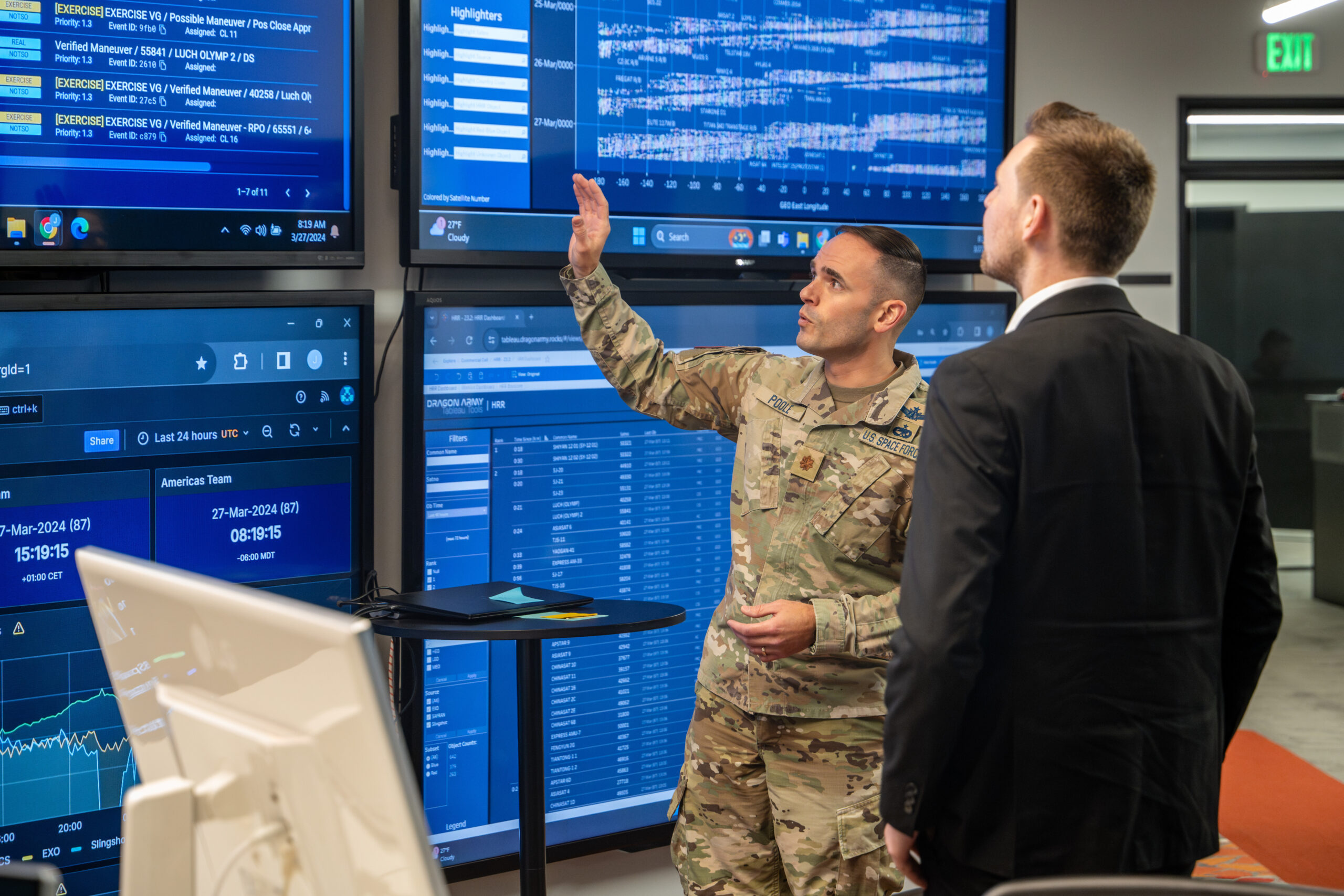WASHINGTON — The U.S. Space Force has embarked on yet another attempt to modernize ground systems used to command and control military satellites. This time, it’s turning to the commercial sector and the cloud with a program called Rapid Resilient Command and Control (R2C2).
The R2C2 program started over a year ago but made headlines recently when it unveiled a roster of 20 companies selected for an indefinite delivery/indefinite quantity (IDIQ) contract valued at $1 billion over five years. Under this contract vehicle, the vendors will compete for individual task orders to provide the software tools and systems needed to modernize the military’s satellite ground infrastructure.
This aligns with the Space Force’s thinking that previous attempts to revamp ground systems got bogged down in part because they relied too heavily on traditional prime contractors unaccustomed to delivering the type of agile, software-driven capabilities required.
R2C2 follows earlier efforts like the Enterprise Ground Systems (EGS) initiative launched in 2018, which was hampered by overly ambitious goals and cumbersome legacy architectures. A subsequent program called Ground Command, Control and Communications (GC3) started in 2020 was too narrowly focused on just the Space Rapid Capabilities Office’s satellites.
R2C2 aims to take a more pragmatic, incremental approach by tapping commercial vendors and cloud computing to deliver upgrades to the military’s current ground infrastructure.
Re-tasking satellites faster
The program, run by the Space Force’s Space Rapid Capabilities Office, is designed to help military operators reposition satellites, refuel on-orbit assets and respond to threats. The Space RCO said operators need tools to be able to command and control assets to take action in scenarios that would unfold during a conflict such as maneuvering or re-routing networks.
Michael Ehrlich, executive vice president of Frontier Technology Inc. (FTI), said that instead of trying to create a common platform, R2C2 is developing a cloud-based and software-enabled ground infrastructure that would provide more flexibility.
FTI is one of the 20 companies selected for the IDIQ contract. The company was previously a contractor for the EGS program.
“We’re building on elements from EGS but taking a new approach to establishing a unified command and control system,” Ehrlich told SpaceNews.
The goal is to have resiliency by allowing ground operators to rapidly respond to attacks, jamming, cyber intrusions and other disruptions that could cripple satellite networks, he said. The ability to dynamically re-task assets is a new capability the Space Force is pursuing.
Ehrlich noted that cybersecurity was often an afterthought in legacy ground systems, but in R2C2 the “cyber component is really woven into the DNA of everything.”
Related
Read the original article here
